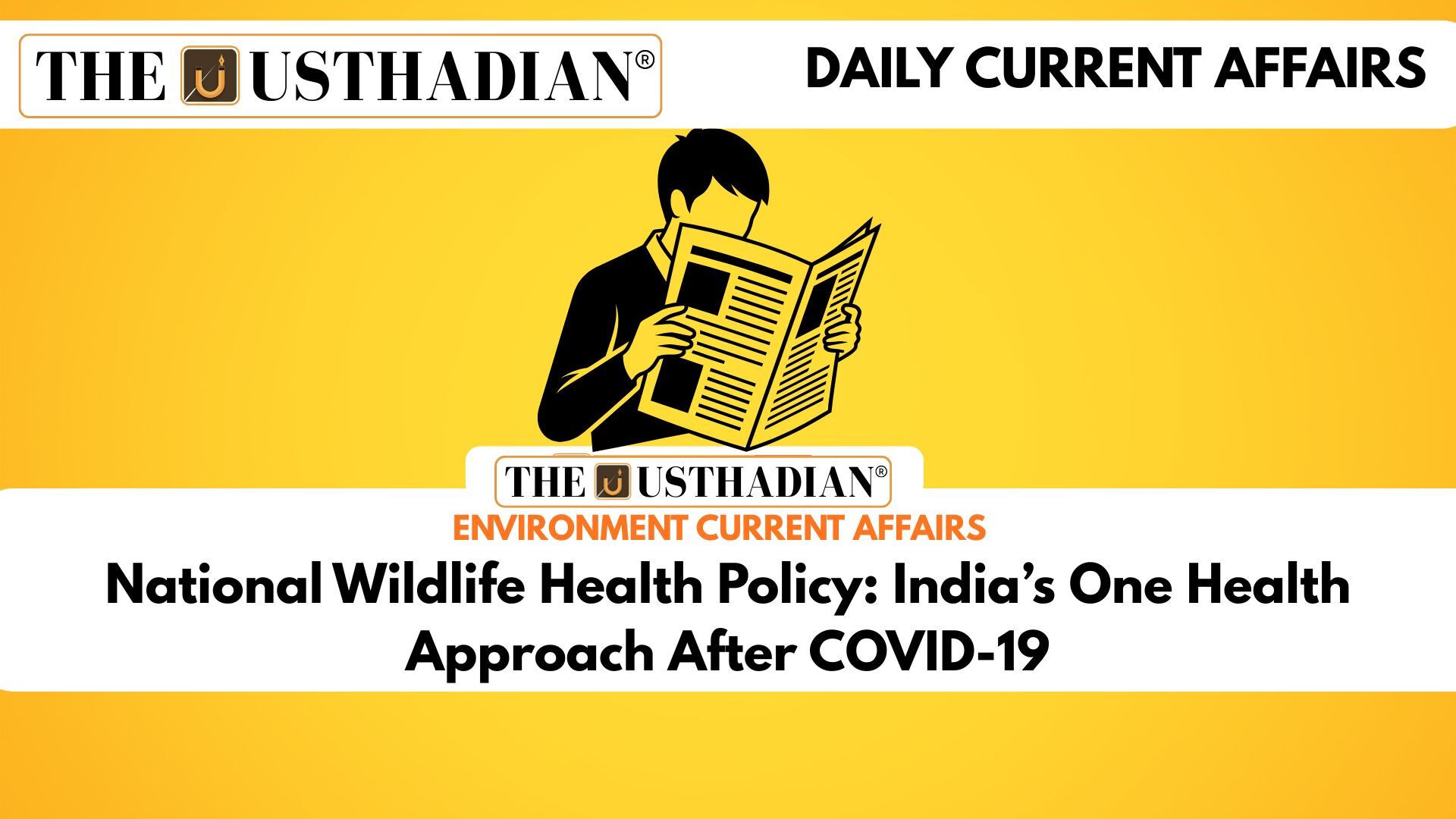Bridging Wildlife and Human Health After the Pandemic
National Wildlife Health Policy: India’s One Health Approach After COVID-19: Five years after COVID-19 was declared a pandemic, India is moving forward with a draft National Wildlife Health Policy (NWHP) to improve its preparedness for future disease outbreaks. The policy is a response to the growing threat of zoonotic diseases, as studies suggest that over 60% of emerging infections in humans come from animals. The policy adopts the One Health approach, which integrates human, animal, and environmental health, and aligns with India’s National One Health Mission to tackle cross-sectoral disease challenges more effectively.
Designing a Structure for Surveillance and Action
The NWHP is being developed under the supervision of the Central Zoo Authority (CZA) and supported by the Principal Scientific Adviser’s office. A core working group and seven thematic groups have proposed recommendations to monitor and manage diseases across terrestrial, marine, and avian ecosystems. One of the key proposals is to set up a National Referral Centre for Wildlife (NRC-W) to handle investigations into wildlife deaths and disease outbreaks, ensuring rapid response and coordinated decision-making.
Wildlife Health Databases and Real-Time Reporting
A major innovation in the policy is the plan to create a National Wildlife Health Database, which would serve as a centralised platform for real-time surveillance. This system will be integrated with animal husbandry and human health data networks, ensuring smoother reporting, faster alerts, and better preparedness. The proposed Wildlife Health Information System will help standardise data collection and enhance coordination between forest officials, veterinarians, and health professionals.
Boosting Labs and Livestock Protection Near Forests
The NWHP proposes the development of satellite diagnostic laboratories near critical wildlife habitats. These labs will allow for quick and accurate disease testing and early detection of pathogens. The policy also emphasizes community engagement, especially through improving livestock vaccination coverage in areas near national parks and reserves, which is vital in reducing disease transmission between domestic animals and wild species.
Integrating Ministries for Unified Wildlife Health Management
Currently, wildlife protection is managed by the Environment Ministry, while animal health falls under the Agriculture Ministry, leading to fragmented responses. The NWHP aims to break down these silos and establish cross-sectoral coordination, enabling joint actions, better communication, and an integrated system of wildlife disease surveillance and response. This unified policy could become a key part of India’s broader effort to prevent pandemics at the source.
STATIC GK SNAPSHOT
National Wildlife Health Policy: India’s One Health Approach After COVID-19:
| Aspect | Details |
| Policy Name | National Wildlife Health Policy (NWHP) |
| Draft Status | Under review by Environment Ministry & CZA |
| Developed by | Central Zoo Authority & Principal Scientific Adviser’s Office |
| Core Focus | Wildlife disease surveillance, diagnostics, and community health |
| Key Institution Proposed | National Referral Centre for Wildlife (NRC-W) |
| Surveillance Scope | Terrestrial, marine, and avian ecosystems |
| Proposed Systems | Wildlife Health Database, Wildlife Health Information System |
| Field Infrastructure | Satellite diagnostic labs near critical habitats |
| Cross-Sectoral Integration | Human, animal, and environmental health under One Health approach |
| Linked Mission | National One Health Mission |








